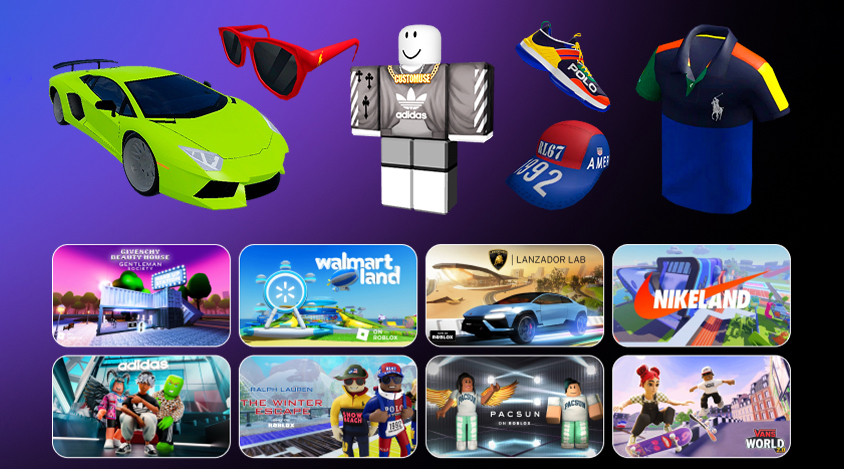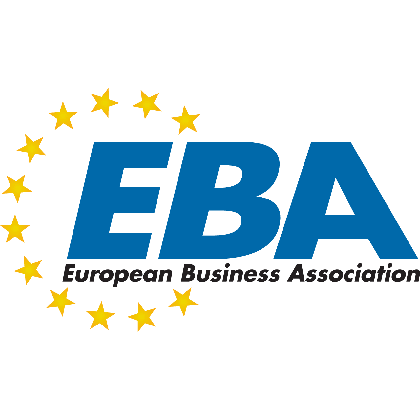Why should all modern businesses focused on sustainable growth pay attention to the metaverse? This article will provide a comprehensive answer to this and other questions about how businesses may leverage metaverse technology.
The recent craze about the metaverse doesn’t stem exclusively from Facebook's rebranding to Meta. Moreover, it has been hovering in the air of the IT industry since the mid-1990s, especially after the launch of Second Life in 2003, the first alleged metaverse in history. Though it didn’t use XR technology, 5G, IoT, blockchain, and so forth, it was a significant development.
Nowadays, more and more international brands like Gucci and Nike take advantage of metaverse development services to increase their media presence, expand their scope of influence on the market, and multiply their value for consumers. That’s why all modern businesses focusing on sustainable growth must consider the metaverse.
So, what makes the metaverse concept so unique? Is it only about innovative technology or a new digital-oriented mindset? Well, this article will provide comprehensive answers to these and other questions related to how businesses may leverage the metaverse technology. Prepare for the insights that will boost your performance!
What Does the Metaverse Mean for Businesses?
Before estimating the value of all these innovative technologies for businesses, let’s answer the question of what the metaverse is. Although the term isn’t yet specified in a dictionary and presupposes a vague meaning, fundamentally, the metaverse is a virtual world accessed via smart devices where users can live as if it were real life. Simple as that.
Still, what does it all imply, and how do you use the metaverse for business? Conceptually, enterprises can employ immersive technology, blockchain, 5G, IoT, and other solutions that facilitate the existence of metaverses to build their digital environment providing a wide range of services or products that respond to the digital consumer demand.
Despite broader media coverage and better marketing opportunities, the metaverse offers a more convenient workspace, travel cost savings, almost infinite business expansion prospects, quicker employee onboarding and training, and improved networking. Greater user accessibility and immersive experience will also come in handy for businesses.
Why Program-Ace's MR Experience Metaverse Platform Is Worth Your Attention

This cloud-based VR world is a metaverse where teaching enthusiasts can immerse their workflows, bringing them to a never-before-seen level. Its use requires no coding background to craft unique spatial training apps that enhance onboarding and e-learning.
Metaverse Business Opportunities and How Not to Lose Them
So, what are the metaverse opportunities for business, after all? First and foremost, they revolve around promotion, marketing, advertising, and gamified interaction options. Customers inside your virtual world can communicate, play, buy, and sell items made for the metaverse. By the way, these can be traded for NFTs and cryptocurrencies like Ethereum, which, along with blockchain, ensure decentralization.
More specifically, business opportunities to consider before developing your metaverse include:
- Gaming. Metaverse gaming, built over decentralized blockchain platforms and a play-to-earn concept, will undoubtedly become one of the most profitable businesses.
- Virtual real-estate. Like Roblox and Decentraland, you can buy and sell digital land inside your metaverse, another curious business model.
- NFT marketplaces. The role of the NFT in the metaverse already implies a better understanding of ownership inside virtual environments and how digital items must be treated. The same goes for businesses based on cryptocurrencies.
Now, let’s discuss the other benefits of the metaverse in business more precisely so you can understand how to use immersive technologies effectively.

Metaverse E-Commerce
With immersive e-commerce, your customers will gain access to virtual retail stores where they can buy any digital items for, say, cryptocurrency, considering that metaverses are expected to rely on blockchain. Whether digital food or clothes; it’s a beneficial opportunity to seize for businesses that intend to expand their presence virtually.
Besides, according to the 2022 survey, Gen Z, Millennials, and Gen X are the demographic groups most interested in visiting virtual worlds. Especially given that these generations will make up the bulk of all the future audiences targeted by enterprises, investing in the metaverse right now is an endeavor that ensures long-term value.
Today, selling digital in-game items for NFTs has become a global trend. Considering the pace of technological advancement, it’s a matter of time before running a metaverse e-commerce business will bring profit comparable to the same activity conducted in real life.
Metaverse Entertainment
Among all other metaverse industries, entertainment unquestionably occupies a special place. 72% of employees confirm tthat gamification encourages them to put more effort into their work, confirming that the role of the metaverse in business and management is difficult to overestimate.
Therefore, by gamifying various aspects of work inside a company, employers improve onboarding, increase employee motivation, and attract more metaverse users in the long run. Thanks to the play-to-earn philosophy, blockchain-based games are foreseen as one of the most beneficial models for engaging new players in the metaverse.
Metaverse owners will provide users with extra value by allowing people to buy and sell in-game items as NFTs and earn them through gameplay. The GameFi concept will be a prerequisite for future gaming approaches. The industry is already witnessing it in present-day NFT games like Axie Infinity.
Metaverse for Business Meetings
Following Meta, Microsoft announced it would improve Mesh for Microsoft Teams to bring metaverse business meetings closer to its corporate culture. Aside from gamified activities and e-commerce, businesses can conduct online meetings inside a corporate metaverse, with 3D avatars replacing actual employees.
Such an approach to discussing internal corporate processes refreshes the activities to which team members have been accustomed, which will likely facilitate better motivation and more in-depth workflow analysis. Notably, this initiative may also be considered a gamification since employees use avatars to represent themselves in a virtual environment.
Beyond question, it will take time before everyone gets used to similar online meetings, but metaverse training will smooth this process. Furthermore, applying metaverses for these purposes will likely help resolve many workflow-related issues, such as decreased engagement during long meet-ups or the lack of staff motivation.
Metaverse for Social Networking
No one would argue today that the upcoming metaverse will become the extension of what we now call social media. Inside a virtual environment, users are expected to communicate and interact with each other without any need to type in some text. As one of the most long-anticipated Web 3.0 manifestations, the metaverse for social networking is about to change the entire market game thanks to interoperability and interconnectedness.
Since such a social network rests on the pillars of blockchain, another huge benefit of this solution will be cybersecurity and high protection from data leaks. Do you know how many data breaches occurred, for example, in 2019? Well, the answer is 3,813 leaks in the first half of the year, affecting about 4 billion records, with 68 being stolen each second. These stupefying numbers can be reduced with decentralization.
Metaverse as a Marketplace
What we call NFT marketplaces today will soon be integrated into metaverses owned by various corporations, each having its own. You can become one of them by starting to develop such a platform. In any event, your users will need this marketplace to buy and sell NFTs or other cryptocurrencies when they earn them after participating in various virtual activities, including games, competitions, etc.
Launching a metaverse marketplace opens many opportunities for businesses, whether you are planning to sell virtual land or essential in-game items. In the future, digital objects will likely hold more value than physical ones. The whole NFT craze in the modern world already proves it. Consequently, the sooner businesses build their metaverse marketplaces, the broader audience they attract.
How to Move Your Business to The Metaverse?
Regardless of size, every brand can establish a presence in the virtual realm and leverage its advantages. If you want to be at the forefront of this emerging field, here are steps to transition the metaverse in business and explore associated use cases and benefits.
- Choosing the right platform
- Enhance your digital footprint
- Explore AR/VR app development
- Identify Your target audience
- Prioritize the user experience
- Don’t forget about the traditional methods
- Stay flexible
The initial step is selecting the appropriate platform to navigate your entry into the metaverse. Currently, several platforms can be deemed versions of the metaverse, spanning various focuses such as real estate, gaming, and non-fungible tokens (NFTs). Roblox is among the most popular platforms, boasting over 49 million active users.
Prioritizing entertainment, authenticity, and creativity is essential when targeting a younger audience on platforms. This approach also resonates with more mature audiences on platforms like Decentraland, which focuses on creating digital infrastructures using Ethereum blockchain technology. In Decentraland, users engage in real-life activities such as purchasing virtual land, organizing events, and crafting virtual objects.
Before committing to a platform, conducting thorough research on the top metaverses is advisable. Understanding the demographics they attract, the prevalent products or services, and how your metaverse in business can seamlessly integrate into the virtual world is crucial.
Before delving into metaverse business opportunities, it's crucial to reassess your current online presence and branding strategies. Ensure that your digital footprint is robust and familiarize yourself with the fundamentals of the online market, as similar principles apply.
For instance, if you're venturing into the VR business, establishing a top-notch website and expanding your social media presence are imperative. Maintaining an active online presence is vital to capitalize on opportunities and prevent customer frustration due to outdated or inaccessible information. Keep your online content updated and relevant to maximize engagement and user satisfaction.
Expanding your business into the metaverse may necessitate developing or integrating augmented reality and virtual reality technologies. Since the metaverse converges VR, AR, and AI, familiarizing yourself with these technologies is essential before transitioning your metaverse business.
Start by experimenting with VR headsets and complementary technologies to initiate your metaverse journey and envision the potential of migrating your metaverse for business.
Numerous brands in the metaverse have already begun exploring AR/VR functionalities. For instance, Zara launched a highly successful campaign enabling users to shop via an AR app. This app allows shoppers to point their phones at store windows or in-store sensors, bringing virtual models showcasing the brand's products to life on their screens.
Selecting the appropriate audience is an important step when establishing a metaverse development company. Your product or service can organically attract attention by targeting the right audience, ensuring a positive customer experience, and fostering repeat business.
Rather than attempting to appeal to every individual in the metaverse, concentrate on understanding the needs and preferences of your intended customers, directing your marketing endeavors toward them.
For example, if your metaverse business aims to create a blood pressure monitoring solution, focus on older individuals susceptible to blood pressure fluctuations.
In the metaverse realm, customers and clients crave immersive experiences rather than passive observation. Ensure that your metaverse business offers an engaging and interactive encounter for users. Whether establishing a virtual store or developing a game, aim to provide multi-dimensional visibility for products and lifelike controls for actions.
Understand the emotions and sensations your target audience seeks upon entering the space. Tailor your offerings to evoke these feelings, fostering a memorable experience that encourages repeat visits. Increased user engagement not only leads to prolonged interactions but also boosts spending. Moreover, a superior user experience enhances customer loyalty, a vital aspect to aspire to.
Avoid hastily abandoning traditional methods when transitioning your business to the metaverse. While all-virtual operations may seem enticing, it's essential to recognize that not all customers are ready for such a shift.
Remember that meeting customer expectations has always been fundamental to good business practice; for many, traditional methods still hold value. Therefore, as you position your company for the future, don't overlook the benefits of maintaining a presence in traditional channels. Offering your audience the option to engage with your brand through virtual and traditional means ensures inclusivity and accommodates varying preferences.
In the evolving landscape of the metaverse, there are no set rules or definitive paths to success. Embrace the trial-and-error nature of conducting business in virtual realms and ensure your enterprise remains adaptable to these environments' fluidity.
Harness the potential of the metaverse community to test your products virtually, gaining valuable insights into consumer preferences and anticipating future trends. Embrace the opportunity to explore unprecedented avenues for expansion and begin preparing your business for the metaverse today.
Companies in the Metaverse: 5 Cases
Interoperability lies at the heart of the metaverse, ensuring a select few companies don't monopolize it but instead comprise interconnected spaces where users can seamlessly navigate between. With a fully-fledged economy and integration of physical and virtual realms, the metaverse heralds the advent of an "embedded internet" characterized by decentralization.
The potential for businesses in the metaverse is vast, spanning social engagement, remote work, entertainment, financial transactions, healthcare, consumer goods, freelance opportunities, and more.
However, significant developmental challenges persist, including addressing technical complexities, refining VR hardware for enhanced usability, and dismantling barriers hindering widespread adoption. We inhabit a "proto-verse," akin to the early stages of the Internet, marked by disparate virtual worlds awaiting interconnection.
The presence of global organizations in the metaverse is a hot topic today. Many companies on the metaverse envision how the industry will profit from applying this technology. Let’s discuss the five metaverse development companies.

Meta. The modern leader and pioneer of the metaverse, which we’ve previously referred to as Facebook, is building a virtual world powered by a supercomputer. It’s expected to encompass gaming, trading, social networking, working, and other online activities.

NVIDIA. Like Meta, this company is working on its own Omniverse, a platform for creating metaverse-ready assets. Nowadays, NVIDIA supports artists and content creators who contribute to the existence of future virtual realms.

Epic Games. Fortnite, the company’s most profitable product, is already known as a prerequisite for the future metaverse. For instance, Epic Games arranged a few concerts of real singers to take place inside Fortnite’s digital world, one of them being Ariana Grande’s virtual tour.

Decentraland. Another company is preparing its own metaverse platform for various content creators and businesses willing to use it as a marketplace of digital products and services. Also serving as a game, Decentraland allows its players to express themselves and become a part of the virtual universe.

Roblox. Operating as an open gaming platform, Roblox arranges virtual events, one of which is the Lil NasX concert, which has taken place inside the already functioning gaming world. That’s why more and more businesses are taking advantage of the metaverse for the event industry, making platform solutions versatile.
Rely on Program-Ace to Create a Metaverse for Business
Although pioneering large-scale companies like Epic Games are already harvesting the perks of owning a metaverse, there’s still plenty of room for startups and smaller studios to join the race. With the help of a reliable partner like Program-Ace, you can build your metaverse for any purpose, including e-commerce, staff training, education, etc.
To start achieving your business goals as soon as possible, contact us. We’ll discuss every detail related to your future project and offer all of our expertise.






















